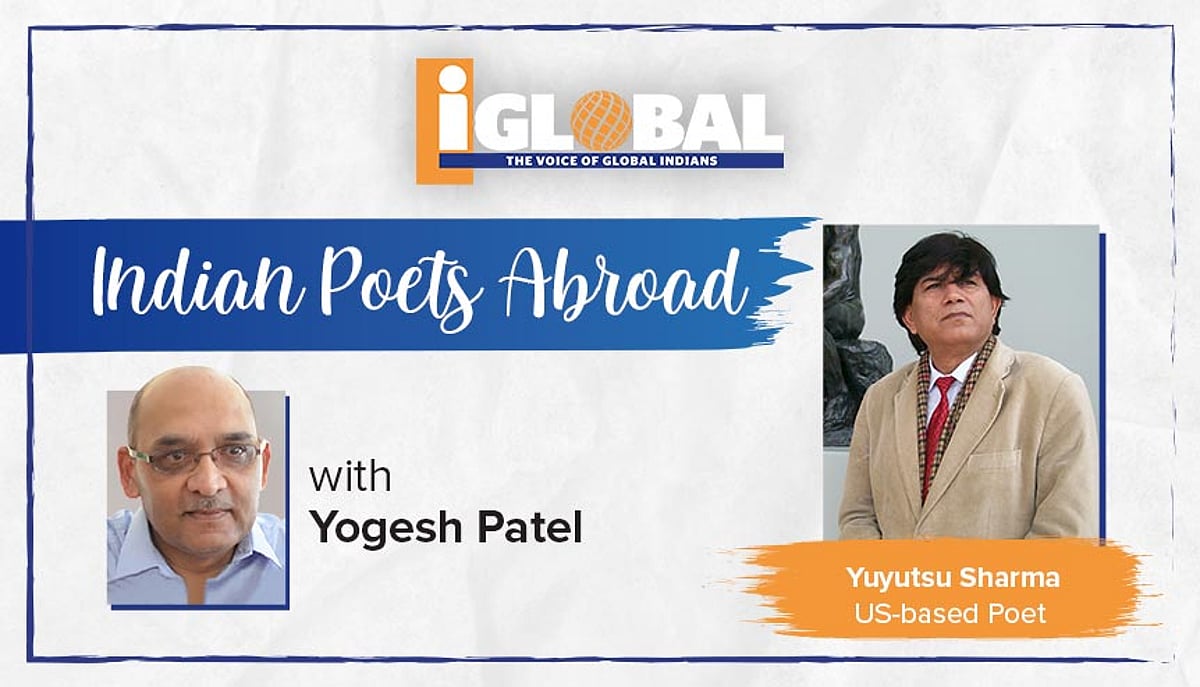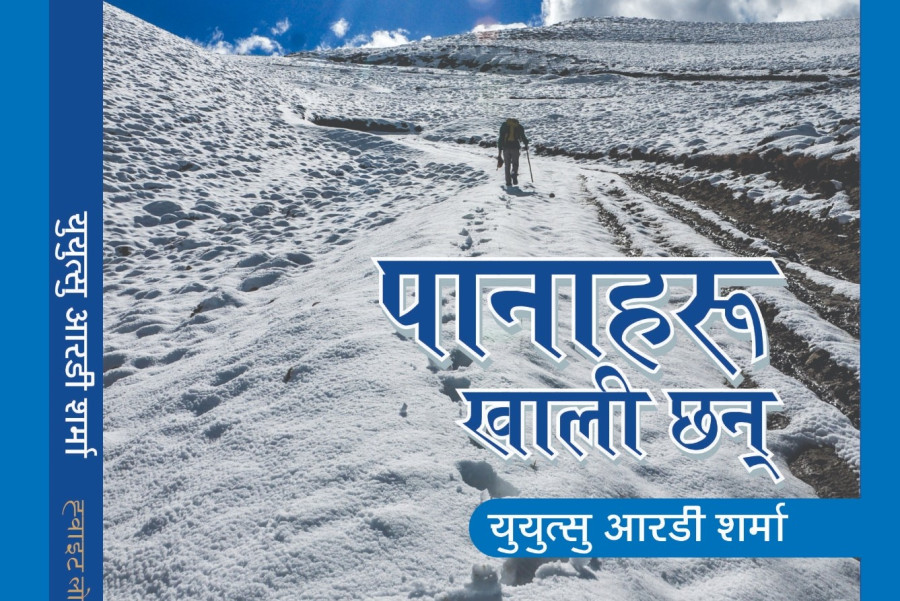Open, fearless & candid: The mantra to decode modern poetry

In this series for ‘iGlobal’, UK-based writer and poet Yogesh Patel hand-picks some poets of pride from across the Global Indian diaspora to showcase their works and poetic journey.
In this edition, we meet Yuyutsu Sharma, who is a world-renowned Himalayan poet and translator and recipient of fellowships and grants including the Rockefeller Foundation; Ireland Literature Exchange; Trubar Foundation, Slovenia; the Institute for the Translation of Hebrew Literature; and the Foundation for the Production and Translation of Dutch Literature.
He has published 10 poetry collections including, ‘The Second Buddha Walk’, ‘A Blizzard in my Bones: New York Poems’, ‘Quaking Cantos: Nepal Earthquake Poems’ and ‘Annapurna Poems’. Three books of his poetry, ‘Poemes de l’ Himalayas’, ‘Poemas de Los Himalayas’ and ‘Jezero Fewa & Konj’, have appeared in French, Spanish and Slovenian, respectively.
Half the year, he travels and reads all over the world and conducts Creative Writing workshops at various universities in North America and Europe but goes trekking in the Himalayas when back home on the Indian subcontinent. Currently, Yuyutsu Sharma is a visiting poet at Columbia University and edits ‘Pratik: A Quarterly Magazine of Contemporary Writing’.
Q: You are a Himalayan poet in the sense of not only the landscape you are one with but also in the leaps of your Himalayan intensity of poetry. Coming from Punjab, moving to Nepal and having a second home in the US, how have you preserved the incorruptibility of your contrasting and simultaneous existences?
A: Excellent question sketching my journey as a poet. Life has been brutal as well as kind to me. I was born in a small Punjabi town, Nakodar, and spent most of my early life with my mother there. My father from the Indian Himalayas worked as a welder in a small hillside town, Nangal Town Ship, where yearly during summer school break I would join him and visit a shrine of Naga Sadhus on the bank of river Satlej.
It’s in this Himalayan town I learnt elementary lessons in poetry and worldly wisdom. Later, as I moved to Nepal and taught at a university campus in a small hillside village, Bhimphedi, I rediscovered my connection with the mountains and poetry. It was my rebirth as a poet. My Punjabi blood and upbringing made me travel fearlessly, first to the remotest Himalayan for over a decade and later to Europe and North America.
During the later wanderings, I carried with me the treasures of silence I’d gathered in the Himalayas. The quiet ennobling life I lived there had ushered a new spring in my writing and made me win the hearts of countless readers I came across. It’s the silence of the snow peaks that has kept me going.
Q: As an editor and publisher exposed to a great range of poetry worldwide, in what context do you see it against your output and poetry being written elsewhere?

A: Indian devotional poet Kabir says, if you want to be a poet, first set your house on fire and come with me and be a poet. I used to teach at Tribhuvan University in Kathmandu, but one day quit my job to take the forbidden path Kabir talks of.
It was like walking on a razor’s edge in the beginning. It’s only in the West I mastered the art of what the Irish would call “singing for supper”. Each nation has its special historical background and life patterns to determine the content and scope of its literature. Over the years, I’ve learnt a great deal from each continent I’ve entered.
Since 2004, my recurrent visits to London have put me in touch with the verve of contemporary British verse and idiom, away from snooty bookish poetry in English that we are attuned to in our subcontinent. The spoken word circles of the British poetry energised my work. Editing a special British poetry issue of ‘Pratik’ with Pascale Petit made me explore the diversity of content and style in British poetry.
Later travelling to the Americas enriched lines of my poems. The grand landscape of North America has expanded my stanzas and their experiments with self, soul and individual freedom have further metamorphosed my vision as visible in my ‘Space Cake, Amsterdam’ and ‘A Blizzard in my Bones’.
Latin America has made me look inwards with a surreal eye and my African counterparts have shaped my urgency to utter the mantra of human dignity and equality, making me look at own demons from a fresher light.
Q: How would you advise readers to approach modern poetry; can you suggest any handles to allow a better grasp of the meanings kneaded in any poem?
A: To understand my work, I do not think they need any handles, only a pure heart. To approach modern poetry, I want my readers to be open, fearless and candid, shed academic trappings, expand their horizon, discard snobbery and respect the ones that have suffered get space and attention.
Like in India for long, the Indian English scene was monopolised by soft-nailed elites and smug bureaucrats. Now with the internet and freedom of communication and reach, there’s a chance for an average middle-class Indian like me to come forward and explore the opportunities hidden meticulously from the masses by our colonial cushions.
When the leading figures in Indian literature were striking deals with the Western counterparts, our forefathers were struggling to survive in India, getting acquainted with the idiocy of newer regimes of oppression.
Finally, a new India is rising to grab the laurels received in proxy by those close to colonial masters. Honestly, without democracy, education and internet, I wouldn’t have been able to step out of my hometown in Punjab, what to talk of becoming known worldwide as a Himalayan poet. If you stay cloistered in a prescribed world, nothing happens. Those who sleep, find nothing, as the Indian saying goes; only those who wake up will discover the treasures of life.
Yogesh Patel MBE runs Skylark Publications UK as well as the non-profit Word Masala Project to promote South Asian diaspora literature. He is the recipient of many awards, including as Poet of Honour at New York University in April 2019. By profession, he is a qualified optometrist and an accountant.
In this regular series for ‘iGlobal’, he will be profiling Global Indian poets from around the world.
*Register here for poetry sessions such as these and much, much more at DiwaliFest 2020.

















